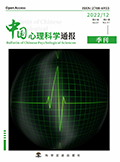

本研究基于对学生问卷调查数据的分析, 探讨了护理专业大学生思想政治教育与心理健康教育的融合路径与策略。调查结果显示, 尽管大部分护理专业学生积极参与思想政治类课程并认可其职业价值观形成中的积极作用, 但仍存在参与度不均、课程内容理论性过强、教学方式单一及与护理专业结合度低等问题。学生面临临床实践中的高强度工作压力和复杂医患关系, 对心理健康教育与思政教育融合的需求强烈。研究分析了两者融合的必要性, 包括学生全面发展的需求、教育改革的趋势及社会发展的需求, 并结合国内高校实践案例, 提出了融合理念、内容、方法及师资的具体策略, 旨在为护理专业教育提供一套切实可行的融合教育方案, 以提升学生思想政治素 养、心理健康水平及职业素养, 培养德智体美劳全面发展的高素质护理人才。
This study analyzes data from student questionnaire to explore strategies and pathways for integrating ideological and political education with mental health education among nursing students. The survey results indicate that while most nursing students actively participate in ideological and political courses and acknowledge their positive role in shaping professional values, issues remain such as uneven participation, overly theoretical content, monotonous teaching methods, and insufficient integration with nursing practice. Faced with intense work pressure and complex doctor-patient dynamics during clinical practice, students express a strong need for the integration of mental health and ideological-political education. The study analyzes the necessity of integration, highlighting factors such as the need for students’ holistic development, trends in educational reform, and broader social development demands. Drawing on practical cases from domestic universities, it proposes concrete strategies for integration in terms of concepts, content, methods, and faculty development. The goal is to offer a practical and feasible integrated education model for nursing education, enhancing students' ideological-literacy, mental well-being, and professional competence, and fostering high-quality nursing professionals with well-rounded development in morality, intellect, physical health, aesthetics, and practical skills.